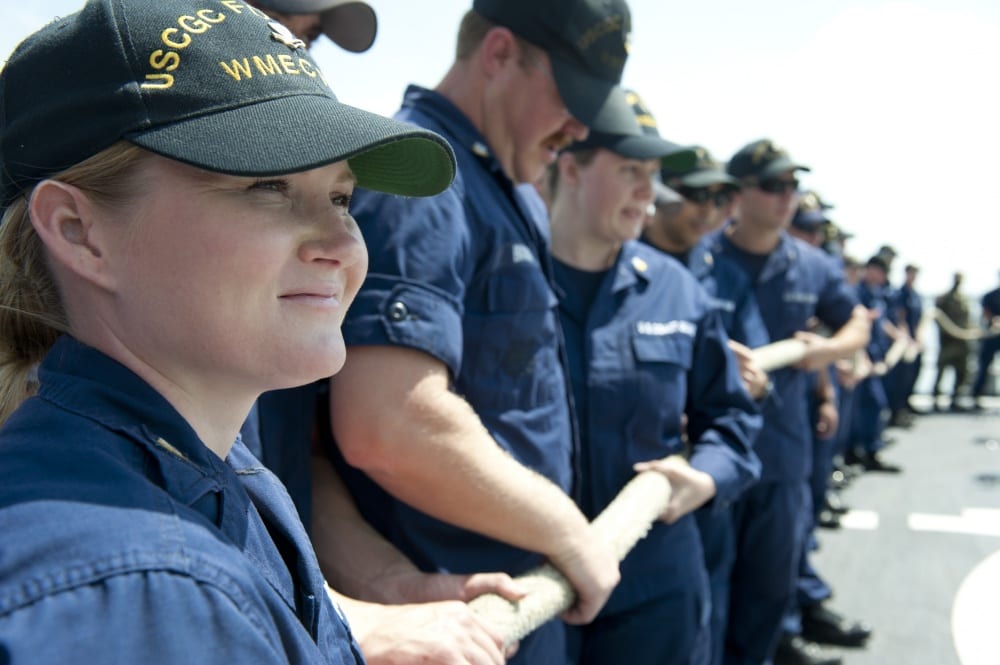Leading with Character: Mentoring
Mentoring is a key element of leadership development so I was pleased to learn the US Coast Guard recently launched a formal mentoring program that was pioneered at the Coast Guard Academy. It’s powered by software that helps match mentors and mentees based on professional interests and backgrounds. The program offers a variety of formats to suit different needs:
- One-to-One Mentoring– Traditional mentoring connection between mentees and mentors.
- Fresh Perspectives: Insight From Future Leaders– Empowering emerging leaders to share their insights in a group setting with senior leadership.
- Communities Marketplace (Circle Mentoring)– Connects Coast Guard personnel with shared interests in a wide variety of communities to enrich career development.
- Flash Mentoring– One-time/speed mentoring, enables mentees to receive guidance on specific issues or topics from subject matter experts.
There are two kinds of mentoring: formal and informal. There’s a time and place for each, and I believe organizations should provide the opportunity for and encourage participation in both. There is no “secret ingredient” that will guarantee a mentee career success, but mentoring should be one of many tools in an employee’s took kit.
When I joined the US Coast Guard over 40 years ago, we didn’t have mentoring programs or even use the word mentor. My first recollection of the word is in 1991 when I was serving as commanding officer of a small icebreaker on Lake Superior. I was called one day and asked if I’d like to attend a brand-new one-week mentor training program being held at a conference center in Virginia.
I remember how good it felt that the Coast Guard thought I had potential and was investing in me. My boss was willing to take the risk of losing one of his commanding officers, which meant he would be short one ship for that week. That meant a lot, and renewed my commitment to the Coast Guard. Lifelong learning fuels motivation!
The training program taught me, first and foremost, that you can’t teach mentoring. I realized mentoring is grounded in good leadership. Leaders of character mentor others to help them achieve their full potential. The best mentoring I’ve ever had has been organic, informal, mentoring. It has been a combination of me seeking a mentor and someone reaching out a hand to mentor me.
Mentors can help others recognize their talents and abilities, develop goals, work through problems, improve weaknesses and leverage strengths. Leadership development becomes a virtuous cycle when leaders deepen their learning by seeking mentors, then give back by mentoring others in turn.
Leaders at all levels can serve as mentors. Contrary to what many may think, mentoring isn’t limited to the conventional senior-to-junior relationships. Peer-to-peer mentoring is powerful and indicative of healthy respect between coworkers. Turning the paradigm upside down, some of the best mentoring I experienced as a senior leader came from those junior to me. Younger people offered me a valuable perspective that helped me better lead at their level.
Although I believe mentoring works best when the relationship happens naturally, formal mentoring programs, such as the one the US Coast Guard just implemented, level the playing field by offering a variety of mentoring programs to all who choose to reach for the opportunity.
Throughout my career, I’ve benefited from a diverse array of mentors, each of whom uniquely enriched my personal development. Mentoring is truly an art, not a science. There are many interpretations and some common misperceptions that can mislead both mentors and mentees. To get the most out of mentoring, leaders at all levels must recognize and beware of these three misperceptions:
Mentoring Misperceptions
- Mentors must look like you
- Mentors must be senior to you
- A mentor will make you successful
Over the next three weeks, I’ll address each of these mentoring misperceptions.
Look in the mirror. Have you taken the time to look around and reach out your hand to offer to mentor someone who has potential?
Please join me again next week for more on Leading with Character.




This is a great reminder that we can all give back and pay it forward by mentoring others. The formal mentoring program you describe is something world class organizations develop and leadership commits to. It is essential to workforce sustainability. I look forward to reading more of your mentoring experiences in your book!